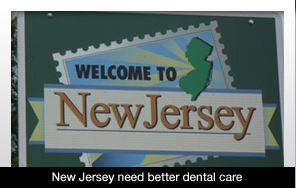 |
There are many children in New Jersey that don’t have the ability to receive proper dental care.
In 2009, more than 20 percent of children in the state between ages 3 and 18 didn’t receive any dental care within the last year, according to a study by Rutgers University. The disturbing part is that these numbers signify an improvement since 2001, when only 33 percent of children in that age group received no dental care.
Still, foreign-born children, as well as children without health insurance were still likely to skip visits to the dentist.
The study, titled New Jersey Children without Dental Services in 2001 and 2009, used information from New Jersey Family Health Surveys to explain the general profile of children who didn’t receive dental care.
The study found that, overall, New Jersey children saw improvement in access to dental care in the eight years between surveys. Still, inequalities exist based on factors such as health insurance status, family income and race/ethnicity.
It’s essential for children to visit the dentist on a regular basis. Some specific points when a dental visit is most crucial include within six months of the first tooth eruption and no later than on the child’s first birthday.
Tooth decay impacts one-quarter of American children ages 2 to 5 and about half of all American children ages 12 to 15, according to a U.S. Surgeon General Report.
Other findings included the disturbing numbers involving uninsured families. Only 7 percent of New Jersey residents were uninsured in 2009 but, among that group, those without dental care rose from 68 percent in 2001 to 76 percent in 2009. And around half of all children whose family had an income below the federal poverty level did not visit the dentist in 2001 or 2009.
The report also indicated that children that visited the doctor were about three times more likely to visit the dentist. These problems could possibly be solved with expanded health coverage.

|


